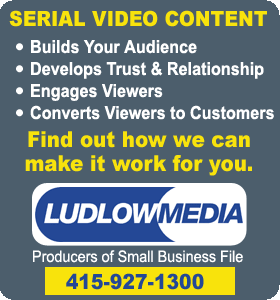Rhys: So you have a media interview coming up and you wanna make the most of it. To help you sharpen your communication skills, we’re talking with Susan Blake. In her career as a TV news anchor and reporter in one of the top 5 markets in San Francisco and nationally on HDTV, Susan has interviewed foreign leaders, top US politicians, and Hollywood celebrities. She has reported from the floor of political conventions, anchored during times of war, riots and natural disasters, and worked on documentaries in India, Japan, the Middle East, and Mexico.
Rhys: Yes. Well I guess we wanna get to what are the most important things that people need to know if they’re gonna be interviewed for either a television program or even on the web.
Susan: So if someone has called or they’re making a request to interview you, there are some of the very basic questions that you need to ask. You need to know really who is the reporter that’s calling you and what organization do they work for and how is that interview actually going to be used. And there are a lot of different things to take into consideration with that. First of all, is it print or is it on camera?
Rhys: Right.
Susan: What kind of media is it, it could also be radio as well. And is this something that’s going to be used on the evening news, are you going to be put on an interview program where you’re on for 30 minutes talking about a subject or are you on with a panel of people talking about a number of different topics. If this is a piece for the evening news, then you’re going to know that they’re probably only going to use – they may talk to you for 4 or 5 minutes on camera as a preparation interview. They’re probably only going to be pulling 15 seconds or maybe 10 seconds, you know, a couple of different times to put in the package that ultimately at best would be a minute and 30 seconds. So they’re going to weave a story around that.
Rhys: What are the most important things that people need to – as soon as they get the call, what do they need to, start thinking about?
Susan: So think about it in terms of maybe 1 to 3 messages that you really, you know, at most maybe 3 messages in a typical interview that may just be going for 5 minutes. I’ve got 3 things I really wanna focus on and I want to bring these points home. Think about in terms of really being knowledgeable, making sure you understand the market and what you’re going up against. How do I separate myself or my company from someone else? This is an opportunity for me to use this to really explain something or to really market my organization. As well, you probably want to do enough research that you know your subject really well — Are there any aspects that maybe you’re not aware of. So you just need to make sure you’re really comfortable and knowledgeable. Once you have that knowledge, that brings you more of the confidence of what it is you’re going to talk about.
Rhys: So one last thing on preparation. The reporter is coming out to your place from a news organization. They might wanna shoot some additional material. Talk about how people…
Susan: Yeah. Anytime you’re talking about on camera where you’re adding that other dimension of the visual, and so oftentimes they will ask you, do you have a photograph of this or do you happen to have B-roll, anything that would support your story that you’re telling, that is a visual component. If you’re marketing yourself and you’re using this interview as an opportunity to tell your story and market yourself, then begin to think, as a business, do I already need to be shooting B-roll or what are some of those visual supports? If you have any other marketing materials, that’s always something that’s good to think about. Also that helps tell your story, like we talked about the preparation and what are your 1 or 2 or 3 points that you really wanna talk about. if you have the visual support to go with that, those two can come together and really tell a strong powerful story for you.
Rhys: Right. And having me on the producer’s end, sometimes if the business owner can tell me what to shoot – so we’re there with the camera, it’s like, oh shoot this person doing this. It helps to tell my story.
Susan: Or if you have –if it is a restaurant that you’re just opening up and maybe it was like your grandmother inspired you with all of her great Italian or Mexican food or whatever it was, it’s like hey, here’s a picture of my grandmother this is where the story started for me, that really gets into that personal component of, wow, this person really has a great idea and this means something to them. It becomes a personal story then that you’re sharing with other people, and that’s always a great connection.
Rhys: Yeah and it helps the producer to tell the story.
Susan: Yeah, exactly. People sitting at home listening to an interview, whether it’s a longer form interview or whether it’s a shorter, you know, just a sound bite or a shorter story, are looking for something that they can connect with, that is gonna speak to their heart or is going to speak to them in a way that then your story or your product becomes memorable to them.
